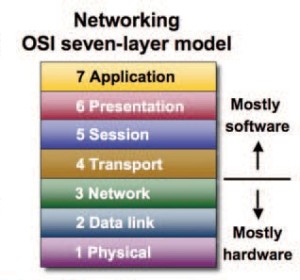
I have heard a lot of conversations about the impact of the cloud on Information Technology (IT) careers. People are worried that the positions they hold in IT will be eliminated because “it’s in the cloud”. Even the role of the Chief Information Officer (CIO) is being questioned. Like the REM song, some IT workers are seeing the end of the world as they know it. Not all of them feel fine, but I am not so sure it’s the end of the world; I think maybe the world has just rotated a bit, so I feel fine.
Let’s start with a definition of Information Technology. Based on Merriam Webster, information technology is the technology involving the development, maintenance, and use of computer systems, software, and networks for the processing and distribution of data, where technology is defined as the practical application of knowledge especially in a particular area. Also consider the definition of engineering or the design and manufacture of complex products.
When I think of IT careers, I think of the Corporate IT department focused internally on the practical application of technology knowledge to run the applications and infrastructure that are used for the business operations of an enterprise from marketing through support. Engineering, on the other hand, is externally focused on creation of revenue generating (preferably) products offered to a targeted customer base often based on the use of computer systems, software and networks (IT). In some organizations the IT department supports engineering and sometimes it doesn’t, that is always an interesting conversation; is support of the infrastructure for Engineering an IT or an Engineering career, the activities are often quite similar and Engineering platforms are often good cloud candidates. So are IT or Engineering careers more affected by the cloud? I am not sure either, but let’s keep going.
Beyond IT support of engineering platforms as a career, there is career rotation going on from IT into Engineering. Take networking for example; it is a core competency for ensuring that clouds continue to float.

Capabilities are moving around, some things that used to be delivered in hardware are delivered in firmware and firmware in software (that’s why the word “mostly” is in the picture). But more important from an IT career perspective is the move of tasks that were done manually into software. Now instead of having an IT career in a company implementing and supporting their network you might rotate into a company developing a product that does what you used to do manually (isn’t that what technology is all about) and have an Engineering career, still technology focused just a little rotation. You can take this rotation to other information technology disciplines as well. Look at the whole concept of virtualization and the Engineering careers created from IT needs being looked at in different ways and solved through technology.
The use of the term information technology continues to become broader since computer systems, software and networks have become ubiquitous. You can be talking about the CIO and the Corporate IT department running your business (IT careers) or any aspect of technology used to run anything, anywhere, which for my purposes I am going to call Service Provider IT (SPIT). OK, maybe not the best acronym, how about IT Operations as a Service (ITOaaS).
Anyway, the cloud still runs on physical machinery; maybe fewer and larger but boxes are not going away any time soon. I think that is one of the biggest hypes about cloud, at the end of the day it’s still computer systems, software and networks, information technology. There will always be a requirement for installing new hardware and someone still has to use the wonderful products created by those IT to Engineering career rotations. The question is who’s going to be operating and supporting those boxes. If you are using public XaaS, then ITOaaS is included in your XaaS. The IT career doesn’t go away; it just rotates to your XaaS provider. Perhaps you are a company that provides an XaaS platform, then you will still require those IT operations skills within your organization, the only question is this an Corporate IT or an ITOaaS career. The needs still exist, it’s just a question of rotation of the world, or not.
One thing that you can be sure of, everything does not work perfectly all the time (remember Murphy’s Law). The cloud is founded on the concept of fault tolerance and high availability but I have experienced the finger pointing that occurs when an application is not working as expected. Every supplier claimed 100% uptime, but that was not my user’s experience. Who do you think those users are going to call? I suppose it depends on who has what contract with what provider. Your XaaS providers will be looking individually at their components, but you are the one with the vested interest in getting things running again. You need someone to drive the incident response. Take a look at the ITIL processes; I think many of them will still be performed within your company by IT professionals.
No matter if it’s public, private or hybrid; single or multi-tenant, the cloud runs on computer systems, software and networks (information technology) which are still designed, developed, delivered and supported by people. There are still plenty of career choices in the broad field of IT. It’s the end of the world as we know it and I feel fine.
© Ellen Terwilliger 2012



